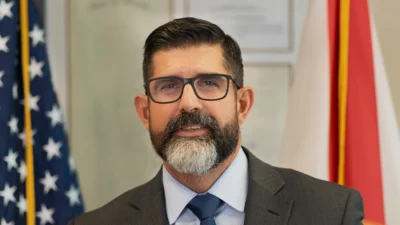The publication is reproduced in full below:
NEW INFRASTRUCTURE AGENDA
The SPEAKER pro tempore. The Chair recognizes the gentlewoman from Georgia (Ms. Bordeaux) for 5 minutes.
Ms. BOURDEAUX. Madam Speaker, like so many of us in this Chamber, I spend a lot of time on the road driving from event to event.
As someone who represents the metro Atlanta area, I have spent far more hours than I care to admit sitting on I-85 in bumper-to-bumper traffic. My staff have all had the experience of being on the phone with me as I pull off the road and try to find a spot with a strong signal in order to call into events because there is just no way I will make it in time with all the traffic.
Congestion is one of the issues we all hear about with frequency. It is not a Republican issue or a Democratic issue. It is a question I get frequently, regardless of whether I am at a townhall, speaking to a Chamber of Commerce, or visiting a small business: What is being done to ease congestion?
This question is particularly important as we continue to have a national conversation on infrastructure. Having spent my career in public policy and public finance, I know how important it is that we make smart investments today to set us up for success tomorrow.
That is why recently I rolled out my infrastructure agenda. I call it FutureFit The Suburbs.
FutureFit The Suburbs is a vision to address our growing needs in the suburbs to make smart investments now to prepare for the next century, from preparing for the impact of climate change to building the transit system of tomorrow.
This agenda focuses on the needs of fast-growing suburbs, recognizing the need for transit and congestion relief in order to maintain economic viability while addressing the climate crisis, and doing all of it in a way that leverages public-private partnerships in a fiscally responsible manner.
The key is to do well by doing good. This initial launch of FutureFit The Suburbs contains four initiatives.
First, I am proud to be introducing a new piece of bipartisan legislation today, the Build Up the Suburbs Act, along with Congressman Carlos Gimenez from Florida, and my Georgia colleague, Congresswoman Lucy McBath.
Imagine a regional bus rapid transit system that would run along our major highways and express lanes, developing an electric bus equivalent of commuter rail to help people get from suburban hubs to major commercial hubs while skipping the traffic. The Build Up the Suburbs Act would fund exactly that.
The next time you need to go to the airport, wouldn't it be easier if you didn't have to budget in an extra hour or two just to get there?
Tomorrow, I will be introducing the National and Regional Greenways Act to provide funding for the construction and expansion of greenways across the country, corridors of land connecting disparate communities with beautiful recreational space and environmentally friendly travel routes, thereby reducing congestion and emissions.
This program would support projects like the visionary Chattahoochee River Greenway, a proposed multiuse path that would run along the Chattahoochee River in Georgia.
Beyond immediate transit priorities, FutureFit The Suburbs focuses on how we can be smart in leveraging the power of public-private partnerships to maximize available resources. For example, as more and more shopping goes online, retail malls, and the large plots of land that they sit on, are going unoccupied and unused, taking up valuable real estate. Through low-interest and guaranteed loan programs, these areas can be restored in a way that serves the community.
Finally, creating a national infrastructure bank would provide Federal seed money to leverage significant private sector investment in major infrastructure projects. Private investment is on the sidelines and looking to invest in our roads, bridges, broadband, and electric charging infrastructure.
Change is coming, whether we like it or not. We can make smart investments now that enhance our quality of life, or we can spend a lot more time, money, and effort retrofitting the same projects years down the road.
By investing now, we can help slow the effects of climate change, create jobs, and position the suburbs for success in the years to come.
____________________
SOURCE: Congressional Record Vol. 167, No. 87
The Congressional Record is a unique source of public documentation. It started in 1873, documenting nearly all the major and minor policies being discussed and debated.
House Representatives' salaries are historically higher than the median US income.





 Alerts Sign-up
Alerts Sign-up